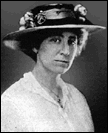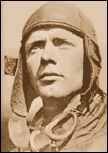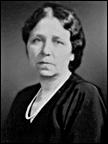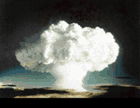U.S. History Timeline: 1900–1949


Between 1900 and 1949 the United States experienced rapid social, political, and technological expansion. It also experienced wars and natural catastrophes that changed the course of the nation. If we look carefully, we can see the roots of many of today’s trends and conflicts in the events of this period.
What Era Does the U.S. history Timeline 1900s Fall Under?
The first part of 20th-century American history, from 1900 to 1949, is called the Progressive Era. It was a time of growth, expansion, and development, albeit punctuated by wars, economic depression, and civil strife.
It’s called the Progressive Era because social movements like the women’s suffrage movement and movements for racial equality brought about progressive changes in society and the law.
Federal and state governments reflected these social changes with progressive legislation that regulated banks and financial markets, enshrined civil rights, and built a social safety net for ordinary citizens.
The second part of the twentieth century is often called the Cold War period.
Major Events Between 1900 and 1949
Here are the major events of the Progressive Era in the United States.
U.S. History Timeline:1900-1949 (The Progressive Era and World Wars)
1900
September 8
- Galveston hurricane leaves an estimated 6,000 to 8,000 dead. According to the census, the nation's population numbers nearly 76 million.
1901
March 4
- McKinley's second inauguration.
September 6
- McKinley's is shot by anarchist Leon Czolgosz in Buffalo, N.Y.
September 14
- He later dies from his wounds and is succeeded by his vice president, Theodore Roosevelt.
1903
Treaty signed November 17
- U.S. acquires Panama Canal Zone.
December 17
- Wright brothers make the first controlled, sustained flight in heavier-than-air aircraft at Kitty Hawk, N.C.
 Wright Brothers at Kitty Hawk
Wright Brothers at Kitty Hawk
1905
March 4
- Theodore Roosevelt's second inauguration.
1906
April 18
- San Francisco earthquake leaves 500 dead or missing and destroys about 4 sq mi of the city.
1909
March 4
- William Howard Taft is inaugurated as the 27th president.
- Mrs. Taft has 80 Japanese cherry trees planted along the banks of the Potomac River.
 Cherry Trees in Blossom at the Washington Monument
Cherry Trees in Blossom at the Washington Monument
1913
March 4
- Woodrow Wilson is inaugurated as the 28th president.
April 8
- Seventeenth Amendment to the Constitution is ratified, providing for the direct election of U.S. senators by popular vote rather than by the state legislatures.
1914 –
1918
- World War I: U.S. enters World War I, declaring war on Germany (April 6, 1917) and Austria-Hungary (Dec. 7, 1917) three years after conflict began in 1914.
Nov. 11, 1918
- Armistice ending World War I is signed.
1914
August 15
- Panama Canal opens to traffic.
1915
January 25
- First long distance telephone service, between New York and San Francisco, is demonstrated.
1916
Treaty signed Aug. 14
- U.S. agrees to purchase Danish West Indies (Virgin Islands) for $25 million.
November 7
- Jeannette Rankin of Montana is the first woman elected to the U.S. House of Representatives.
 Jeannette Rankin
Jeannette Rankin
1917
March 5
- Wilson's second inauguration.
May 15
- First regular airmail service begins, with one round trip a day between Washington, DC, and New York.
1918
- Worldwide influenza epidemic strikes; by 1920, nearly 20 million are dead. In U.S., 500,000 perish.
1919
January 13
- League of Nations meets for the first time; U.S. is not represented.
January 16
- Eighteenth Amendment to the Constitution is ratified, prohibiting the manufacture, sale, and transportation of liquor. It is later repealed by the Twenty-First Amendment in 1933.
August 18
- Nineteenth Amendment to the Constitution is ratified, granting women the right to vote.
September 26
- President Wilson suffers a stroke.
November 19
- Treaty of Versailles, outlining terms for peace at the end of World War I, is rejected by the Senate.
1921
March 4
- Warren G. Harding is inaugurated as the 29th president.
July 2
- He signs resolution declaring peace with Austria and Germany.
1923
Aug. 2
- President Harding dies suddenly. He is succeeded by his vice president, Calvin Coolidge.
October
- Teapot Dome scandal breaks, as Senate launches an investigation into improper leasing of naval oil reserves during Harding administration.
1925
March 4
- Coolidge's second inauguration.
March 23
- Tennessee passes a law against the teaching of evolution in public schools.
July 10–25
- This sets the stage for the Scopes Monkey Trial.
1927
May 20–21
- Charles Lindbergh makes the first solo nonstop transatlantic flight in his plane The Spirit of St. Louis.
 Charles Lindbergh
Charles Lindbergh
1929
March 4
- Herbert Hoover is inaugurated as the 31st president.
October 29
- Stock market crash precipitates the Great Depression.
1931
March 3
- The Star-Spangled Banner is adopted as the national anthem.
1932
January 12
- Hattie Wyatt Caraway of Arkansas is the first woman elected to the U.S. Senate, to fill a vacancy caused by the death of her husband. She is reelected in 1932 and 1938.
 Hattie Wyatt Caraway
Hattie Wyatt Caraway
May 21
- Amelia Earhart completes first solo nonstop transatlantic flight by a woman.
1933
January 23
- Twentieth Amendment to the Constitution, sometimes called the “Lame Duck Amendment,” is ratified, moving the president's inauguration date from March 4 to Jan. 20.
March 4
- Franklin Roosevelt is inaugurated as the 32nd president.
March 9 – June 16
- New Deal recovery measures are enacted by Congress.
December 5
- Twenty-First Amendment to the Constitution is ratified, repealing Prohibition.
1935
April 8
- Works Progress Administration is established.
August 14
- Social Security Act is passed.
- Bureau of Investigation (established 1908) becomes the Federal Bureau of Investigation under J. Edgar Hoover
1937
Jan. 20
- F. Roosevelt's second inauguration.
1938
June 25
- Fair Labor Standards Act is passed, setting the first minimum wage in the U.S. at 25 cents per hour.
1939 –
1945
September 5, 1939
- World War II: U.S. declares its neutrality in European conflict.
January 20, 1941
- F. Roosevelt's third inauguration. He is the first and only president elected to a third term.
December 7, 1941
- Japan attacks Hawaii, Guam, and the Philippines.
December 8
- U.S. declares war on Japan.
December 11
- Germany and Italy declare war on the United States; U.S. reciprocates by declaring war on both countries.
October – December 1942
- Allies invade North Africa.
September – December 1943
- Allies invade Italy.
June 6, 1944
- Allies invade France on D-Day.
January 20, 1945
- F. Roosevelt's fourth inauguration
February 4 – 11
- President Roosevelt, Churchill, and Stalin meet at Yalta in the USSR to discuss postwar occupation of Germany.
April 12
- President Roosevelt dies of a stroke and is succeeded by his vice president, Harry Truman.
May 7
- Germany surrenders unconditionally.
July 16
- First atomic bomb is detonated at Alamogordo, N.M.
July 17 – August 2
- President Truman, Churchill, and Stalin meet at Potsdam, near Berlin, Germany, to demand Japan's unconditional surrender and to discuss plans for postwar Europe.
August 6
- U.S. drops atomic bomb on Hiroshima, Japan.
 Bomb cloud at Hiroshima
Bomb cloud at Hiroshima
August 9
- U.S. drops atomic bomb on Nagasaki, Japan.
August 14
- Japan agrees to unconditional surrender.
September 2
- Japanese envoys sign surrender terms aboard the USS Missouri in Tokyo harbor.
1945
October 24
- United Nations is established.
1946
July 4
- The Philippines, which had been ceded to the U.S. by Spain at the end of the Spanish-American War, becomes an independent republic.
1947
July 18
- Presidential Succession Act is signed into law by President Truman.
- Central Intelligence Agency is established.
1948
April 2
- Congress passes foreign aid bill including the Marshall Plan, which provides for European postwar recovery.
June 24
- Soviets begin blockade of Berlin in the first major crisis of the cold war.
June 26
- In response, U.S. and Great Britain begin airlift of food and fuel to West Berlin.
1949
Jan. 20
- Truman's second inauguration.
April 4
- North Atlantic Treaty Organization (NATO) is established.
- Soviets end blockade of Berlin (May 12), but airlift continues until Sept. 30.
The U.S. Progressive Era and World Wars
The Progressive Era was a time of wars and upheavals, but also of deliberate positive change to government and society—changes that still affect the world and its people today.
Native American Code Talkers played a pivotal role in the course of the first world war. What do you know about the indigenous people of the United States? Test your knowledge with our quiz and Name These Native American Tribes!







